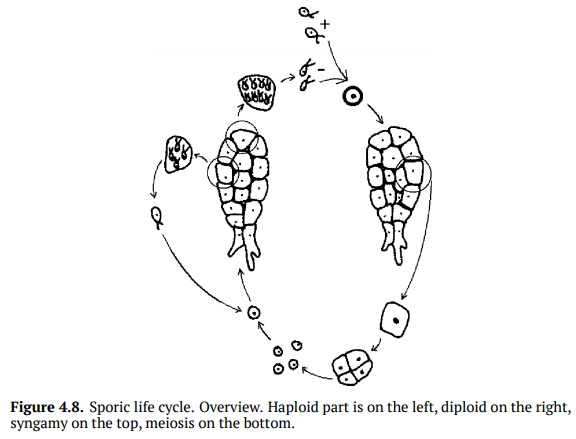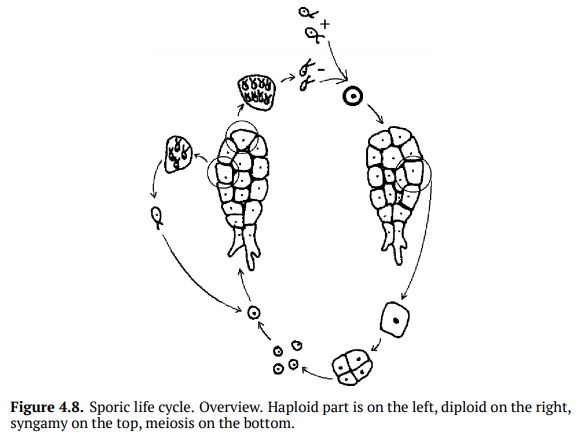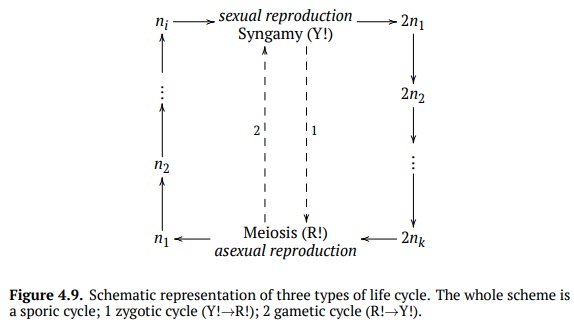Chapter: Introduction to Botany: Multicellularity, the Cell Cycle and the Life Cycle
Sporic, Zygotic and Gametic Life Cycles

Sporic, Zygotic and Gametic Life Cycles
The life cycle described above is the sporic life cycle (Fig. 4.8). Organisms with sporic life cycle have both diplont and haplont, equally or unequally developed.

In all, there are three types of life cycles: sporic, zygotic, which is the most simi-lar to unicellular and most primitive; and gametic, which is used by animals and a few protists (Fig. 4.9). The zygotic life cycle starts with syngamy and goes to meiosis. It has no diplont. Gametic life cycle goes from meiosis to syngamy. It has no haplont.

Protists have all three types of life cycles whereas higher groups have only one. Animals exhibit gametic cycle, whereas plants2 retained the more primitive sporic cycle.
Related Topics